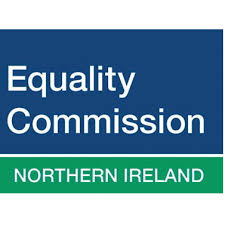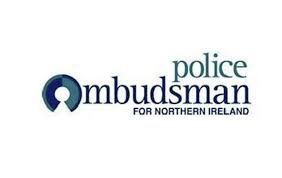Features of the Good Friday Agreement
- Learning for Life and Work
- Jan 9, 2020
- 5 min read
Updated: 4 days ago
The Good Friday Agreement, also known as the Belfast Agreement, was signed on 10 April 1998 and ratified in a referendum in May 1998. It brought an end to a period of conflict in Northern Ireland known as 'The Troubles'.
The Good Friday Agreement led to the following in Northern Ireland:
Devolved Government - Devolved Powers
Devolution in the UK refers to the transfer of authority from the UK Parliament in London to the Northern Ireland Assembly in Belfast. This process of devolution gives regions such as Northern Ireland, Scotland, and Wales the ability to govern themselves on certain issues. The Northern Ireland Assembly were established to enable politicians from all parties in Northern Ireland to come together and make decisions on local matters.
The Northern Ireland Assembly has power over:
Health
Education
Agriculture
Environment
Enterprise
Trade and Investment
Social Services and Justice
Policing
It does not have power over:
Taxes
Elections
National Security
War
Space Travel
This is important as now politicians from Northern Ireland can make decisions for the people of Northern Ireland.
Power Sharing
Members of the Legislative Assembly (MLAs) are required to designate themselves as nationalist, unionist, or other. Power sharing ensures that key decisions are made with shared responsibility and cross-community support. Under this system:
The roles of First Minister and Deputy First Minister must be held by a unionist and a nationalist, each with equal authority.
The Executive must include representatives from both unionist and nationalist parties.
Proportional Representation is used, meaning political parties gain seats based on the percentage of votes they receive.
A mechanism called the Petition of Concern allows a minority group to veto certain decisions, acting as a constitutional safeguard to protect minority rights.

This is important as now all views are involved in discussions and decisions made are shared between unionist and nationalist politicians.
Principle of Consent
The principle of consent recognises the differing political aspirations of nationalists and unionists. It respects the desire for a united Ireland while also recognising that the majority of people in Northern Ireland currently wish to remain part of the United Kingdom. This principle affirms the right of the people of Northern Ireland to self-determination—meaning they have the authority to decide their own political future and form their own government.
This is important as the people of Northern Ireland can now choose whether Northern Ireland should remain in the UK or become part of a united Ireland, there would be no change without the consent of the majority.
Dual nationality - The entitlement to hold either British or Irish citizenship (or both)
This recognises the right of people born in Northern Ireland to identify themselves as Irish or British or both, so could hold both British and/or Irish citizenship.

This is important as the people of Northern Ireland can now chose to be Irish or British (or both) and this choice would be accepted by both the British and Irish Governments.
Safeguards for Human Rights and Equality Established
Committees
These groups review legislation to ensure it meets equality standards.
Pledge of Office
Ministers pledge to fulfill their responsibilities in good faith, with a commitment to non-violence and peaceful means.
They also agree to support the decisions made by the Executive Committee and the Assembly.
Additionally, ministers must vow to serve all the people of Northern Ireland fairly and to actively promote equality.

This is important as politicians have to commit to working for the interests of all the people that they represent.
Democratic Institutions were set up
Independent bodies such as the NIHRC, Police Ombudsman, Equality Commission to promote and safeguard human rights, justice and equality.
This is important as all people in Northern Ireland should be treated equally and fairly and would have institutions to go to for advice if there ever was discrimination.
Ministerial code of conduct
This ensures that ministers promote good public relations and equality of treatment, not use information for personal gain or private interests, to declare personal or business interests which may conflict with their responsibilities.

This is important as people can trust that politicians work in an open and transparent and accountable manner.
Recognition of linguistic diversity
This promotes respect, tolerance and understanding among people who speak Irish, Ulster Scots and languages of ethnic minorities. This means that action must be taken to promote these languages.

This is important so that the Irish language and Ulster Scots language are both accepted, promoted and developed through education, TV programmes and community groups.
Other significant agreements
North/South bodies
There was an agreement on establishing a North/South Ministerial Council and British Irish Council to work collaboratively on issues both north and south of the Northern Ireland border.

This is important for developing relationships between the north and the south of Ireland.
Decommissioning of weapons
It was agreed that any weapons owned/used by paramilitaries would be handed in to be destroyed and no longer used.

This is important as the people of Northern Ireland have to learn to trust that a return to violence is not an option.
Early release of prisoners
People imprisoned as a result of their actions during the conflict were released from prison early.

This is important as everyone in Northern Ireland was offered an opportunity to begin this opportunity with a 'clean slate' and a new beginning.
QUESTIONS YOU COULD BE ASKED ON THIS
Explain one way the Good Friday Agreement could promote linguistic diversity (2marks)
It promotes linguistic diversity by supporting the Irish language, Ulster-Scots, and other ethnic languages in Northern Ireland. This encourages the preservation and use of multiple languages.
Explain one way the Good Friday (Belfast) Agreement ensures there is power sharing (2marks)
It ensures that the First Minister and Deputy First Minister are from both nationalist and unionist communities, promoting cooperation between them.
Explain one reason why dual citizenship is an important feature of the Good Friday (Belfast) Agreement (2marks)
It allows people in Northern Ireland to choose Irish, British, or both citizenships. This respects both communities' identities.
Explain what devolved government in Northern Ireland means (2marks)
The Good Friday/Belfast Agreement allowed the UK government to give legislative powers to the Northern Ireland Assembly. With these powers, the Northern Ireland Assembly can create laws and make decisions about local issues.
Explain two ways the Good Friday (Belfast) Agreement contributed to creating a more peaceful society (4marks)
The Agreement created the Northern Ireland Assembly, where politicians can solve issues through discussion, not violence. (2 marks)
It required paramilitary groups to decommission and give up weapons, helping to reduce violence. (2 marks)
Discuss the key features of the Good Friday (Belfast) Agreement (6marks)
It established a Devolved Government in Northern Ireland government with legislative powers transferred from Westminster, allowing local decision-making.
A Power Sharing government was created requiring cross-community support for key decisions.
Committees and organisations were set up to protect Human Rights and Equality. For example, the Northern Ireland Human Rights Commission and The Equality Commission. This ensures that all people in Northern Ireland are treated equally and fairly.
You should also read:





